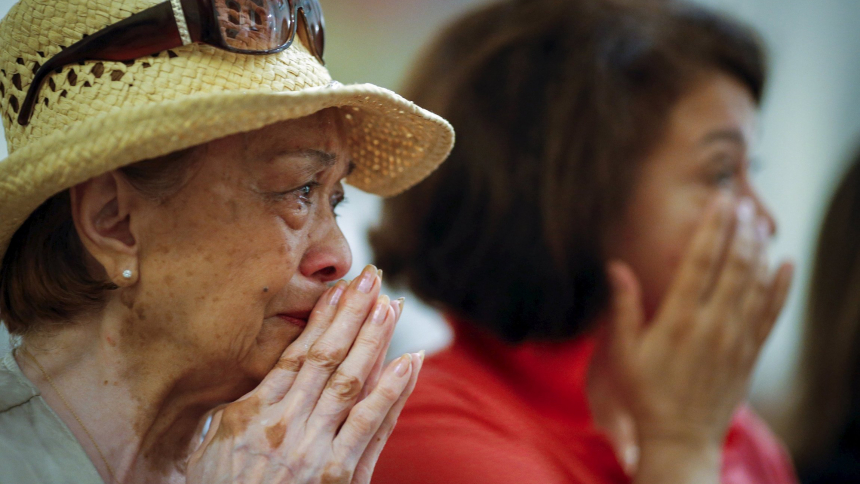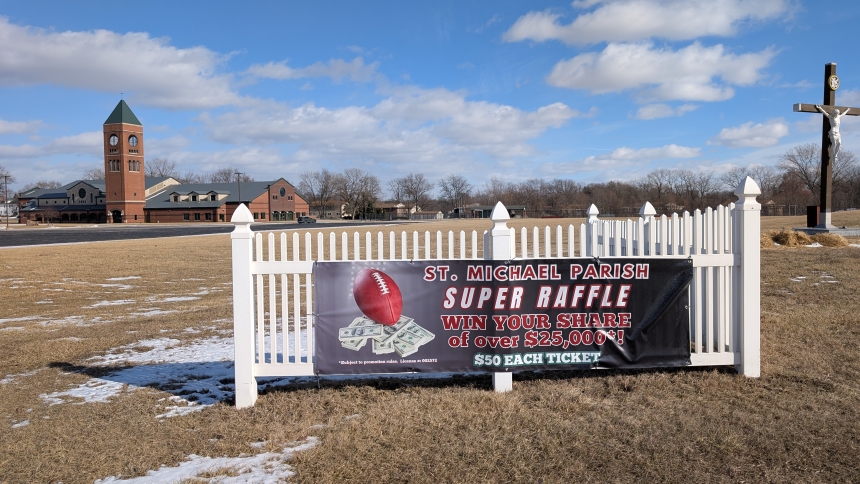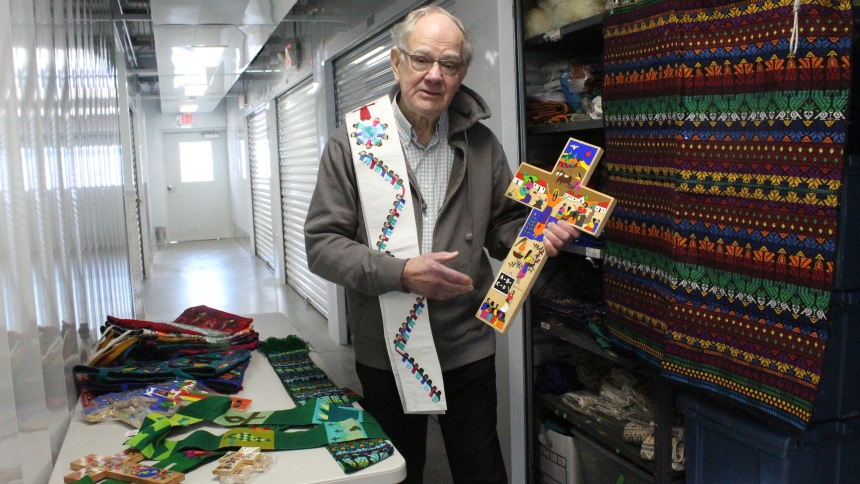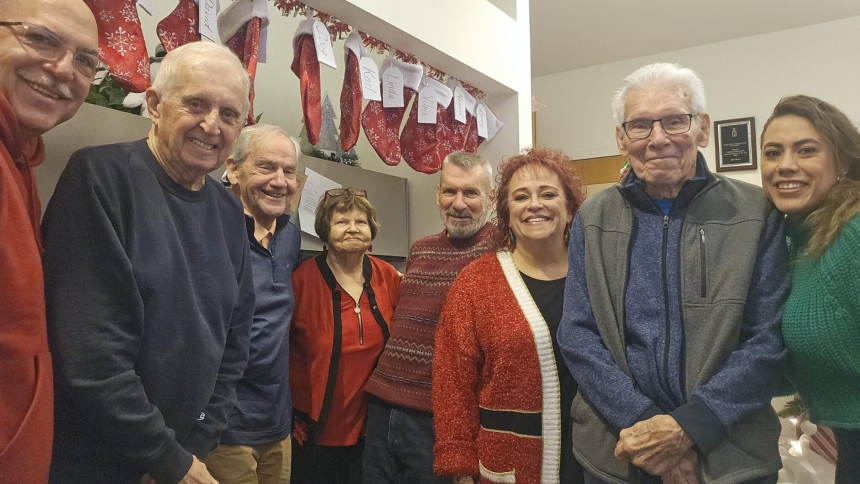
Fewer priestly vocations. Shrinking Catholic populations. An influx of immigrants bringing with them different religious traditions. Aging church structures that need cost-prohibitive repairs. These are just a few of the reasons parishes around the country are facing mergers or closures. Recently, the Archdiocese of St. Louis closed or merged 50 parishes. To help with this transition, 155 priests have been reassigned to different parishes. There is a lot of grief and sadness in St. Louis right now.
But St. Louis is not the only diocese closing parishes. Some dioceses are just closing three or four parishes at a time. Others are creating large groups of cluster parishes. The result is the same. Our Catholic people are grieving over the loss of their beloved churches. This painful grief can lead to anger, isolation, fear, bad decisions and even illness brought on by too much negativity in the body. How can we help one another face the grief of a closing parish in a way that is holy, good and healing? Here are a few suggestions.
1. Recognize the great loss
Some people will be able to respond to a parish closure or merger easier than others. We should not judge. Some of us are like mighty oaks. We put down deep roots. We live in the same house, work the same job and belong to the same parish for years. Others of us are like wildflowers. We are happy to go where the wind takes us. We like the thrill of a new job or a new house.
Those who can accept change easily should be sensitive to the tremendous pain a parish change can be causing for others. Since we cannot always know who is an oak or who is a wild flower, it is best for us to be kind and compassionate to everyone. When parish boundaries change, each of us suffers some loss, even if it is just the fact that someone else has now had the audacity to sit in the pew we always thought of as ours. Some of us may be missing a better Mass time, a favorite song or the peace brought by a beloved statue that seemed to smile down upon us. Because we do not know how much others might be hurting, let us bring an extra dose of kindness with us to every Mass and parish event!
2. Be willing to live with uncertainty for awhile
One of the hard parts about grief is that many of the regular patterns of our lives will change. When we lose a person dear to us, we may not know how we will celebrate holidays or who will kiss us goodnight or watch the ballgame with us. A grieving person must learn to live with uncertainty for a while until new traditions can be established.
It is the same for us when we form a new parish. The questions are endless. What time will the Masses be? Where will I park? What will be the name of the parish? Will we still have a fall festival? It takes time to answer all these questions. Building a “new normal” when a loved one has died can take well over a year. And so it will also be with a new parish. All the questions will not be answered immediately. A weekly “What People Are Asking” column in the bulletin might be helpful.
Change is not easy for anyone. However, getting angry or annoyed will not help our grief. Instead, it will take away our own peace while having little or no effect on changing the situation. Learn to look to the future with hope and joy rather than living in the past with anger. Surrender to the “I don’t know yet.”
3. Expand the charitable work done in the community
It is often true that those who are suffering from grief will be able to forget their own pain when they begin to help someone else. Therefore, rather than moaning about what we have lost, this might be a good time to start something new and good.
A parish is not meant to be our forever home. It is meant to be the place that helps us get home to heaven. And Jesus told us very clearly how it will be decided who will be united in heaven: “Then the king will say to those on his right, ‘Come, you who are blessed by my Father. Inherit the kingdom prepared for you from the foundation of the world. For I was hungry and you gave me food, I was thirsty and you gave me drink, a stranger and you welcomed me, naked and you clothed me, ill and you cared for me, in prison and you visited me'” (Mt 25:34-36).
As members of a parish community, we are called to do more than just feed ourselves with the Eucharist. We are responsible for helping one another get to heaven by doing exactly what Jesus told us to do. We are called to feed the hungry, welcome the stranger, give clothing and shelter to the needy and visit those who are lonely. Doing any of these things will quickly help us forget our own grief and find, instead, the true joy that comes from being united in the work of the Lord. Our Lord never told us we needed to have the best bingo, the best picnic or even the most inspiring church windows. He simply told us to love and care for one another.
4. Reach out to one another
Part of the grief over the closing or merger of parishes comes from discomfort. Things are not the same. We do not know one another as we once did. There are strangers among us. This is great news! We have a chance to make new friends. A good goal would be to introduce ourselves to one new person each week. It is as easy as saying, “I don’t think we have met. I am Sue.” The more people we get to know by name, the more our parish will feel like home to all of us. Name tags at all parish events during the transition year could be a helpful way to facilitate that effort.
5. Be patient
Give people the time they need to heal. But never give up on them. Some people seem to heal quickly from loss - especially if it was expected. Others can take much longer. Everyone grieves differently.
Generally, grief can last for at least a year. Even when it seems we are doing well, a special event, holiday or anniversary can bring back all our sadness. It is especially important to be conscious of this during the first-year celebrations of Christmas or Easter. We must recognize the different traditions people once had. One way is to incorporate favorite songs from closed parishes into our own great feast day liturgies.
6. Remember, every parish is God’s home
We tend to think of a parish as “ours.” Thus, whether the parish we call “ours” is closing or is being joined with another, we can feel a sense of loss and anger. However, a parish is not “ours.” It is not “theirs.” All parishes are God’s. So, when a group of people come together to form a parish with new boundaries, a new name or even new buildings, we must realize nothing that was ours has been taken from us. Instead, what was God’s has shifted a little.
Since all parishes belong to God, we can trust that God has a plan and it is good. He is ready to welcome all of us into this new parish. Let us not be like the invited guests in the Gospel who were too busy to come. Whether we were extremely active in our past parish or whether we did not have the time or energy to be involved before, that slate is wiped clean. We are all getting a fresh chance to be involved in a new community. We are all called and welcomed equally by God to be part of something different, yet potentially wonderful. Let us not miss that opportunity because of anger, shyness or any other emotion that might be holding us back.
Caption: Women weep while they attend the last Mass at the Church of Our Lady of Peace in New York in this file photo dated July 31, 2015. Seventeen Catholic churches across New York City celebrated their last Masses that day as the Archdiocese merged 112 of its 368 parishes into 55, in part because of a shift in Catholic population in some areas. (OSV News photo/Eduardo Munoz, Reuters)



